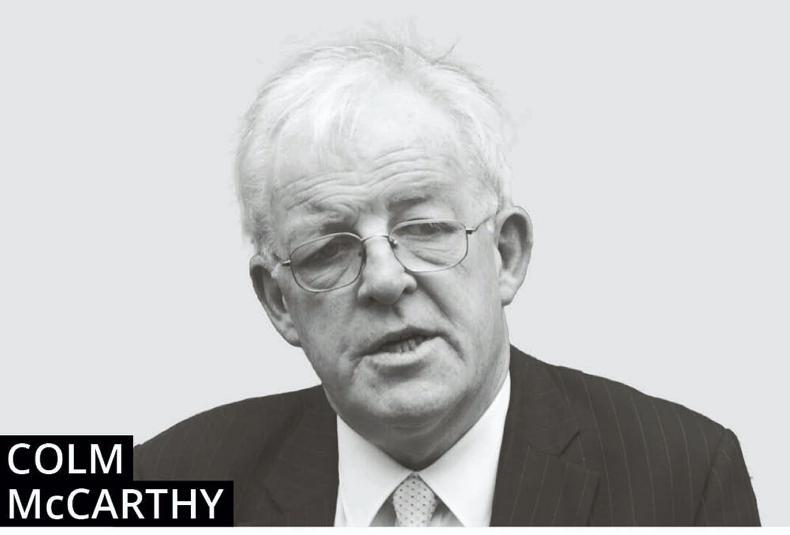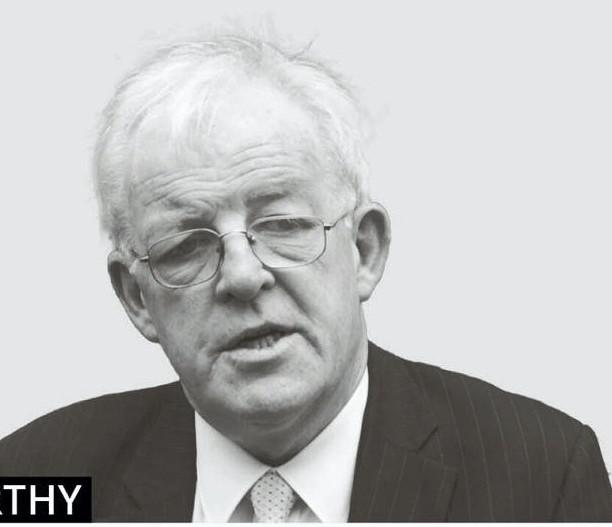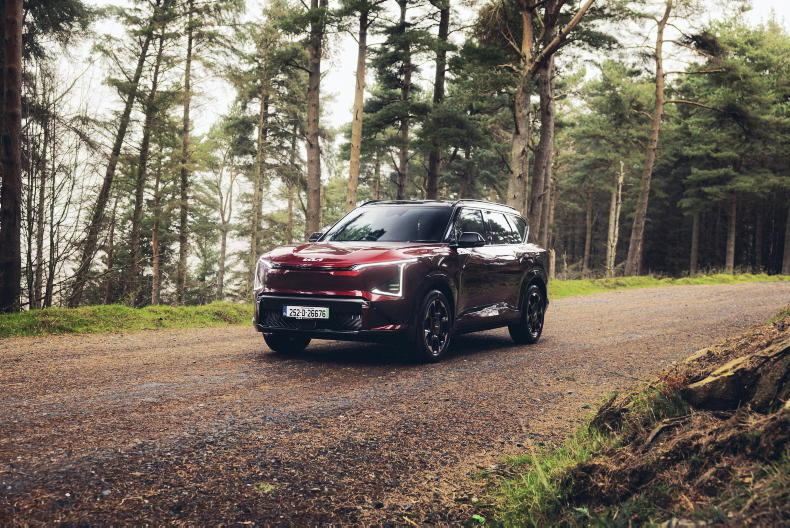Big changes are on the way at some point over the next few years in the taxation of road vehicles and their usage. In Ireland and in most European countries, the road user pays purchase taxes on new (or imported used) vehicles and annual ownership taxes, as well as taxes on the fuel used. In addition, there are direct tolls for the use of some parts of the road network.
Usage
The purchase and annual ownership taxes are unrelated to usage – if you buy a new car and leave it standing in the driveway most of the time, you are paying a very steep charge when calculated on a per-kilometre basis. I have an elderly friend whose 15-year-old car has been used so sparingly that she was rewarded with an instant all-clear and expressions of amazement on a recent trip to the NCT centre.
A switch from standing charges to use-related charges would also have environmental benefits
The fuel tax rises directly with usage as does the cost of road tolls. Aside from raising revenue, the purchase and annual taxes make little economic sense – road users impose substantial costs for road construction and maintenance and it is only fair that the user pays. A switch from standing charges to use-related charges would also have environmental benefits.
Thinking out loud
The Department of Finance produces each year in July a series of ‘‘thinking out loud’’ papers from a committee called the Tax Strategy Group, a useful exercise reviewing options for taxation changes in the autumn budget. This is a slow time of the year for news coverage and the group’s reports usually stir up a bit of welcome controversy in the media. This year’s offering included some thoughts on the taxation of road users and the media managed to misunderstand what was being proposed and to elicit some ridiculous responses from politicians.
Kite-flying
One opposition TD condemned the ‘‘kite-flying exercise by the Government’’, another its ‘‘anti-rural’’ policy, both having misread the proposal (with the help of the journalist who phoned them, presumably) as a new tax on distance travelled.
There is no proposal to tax rural dwellers, long-distance commuters or anyone else on the basis of distance travelled and there will be no such new tax in October’s budget.
The Tax Strategy Group’s paper on energy and environmental taxes, available to everybody (including journalists and TDs) on the Department of Finance website, displays two principal concerns. The first is the low rate of excise duty on diesel versus petrol. Trucks and buses are almost all diesel and the portion of the private car fleet powered by diesel engines has been rising steadily. As a result, sales of diesel have exceeded sales of petrol more than three-to-one in recent years. But diesel is environmentally not quite as friendly a fuel as petrol – both give off carbon dioxide emissions but diesel releases particulates and other nasty stuff which, particularly in built-up areas, has attracted criticism from public health authorities. Diesel vehicles are threatened with an eventual ban in cities including London, Paris and Madrid.
Tax treatment
In Ireland, diesel is about 12c/l or 13c/l cheaper than petrol because of favourable tax treatment – the prices are roughly equal in Northern Ireland. One consequence is cross-border sales to northern users, the emissions from which are counted in the Republic of Ireland total. The other consequence is lower revenue and do not be surprised if there is an excise increase on diesel in the budget.
The other concern in the paper is the likelihood that the car fleet will move towards electric vehicles in the decades ahead. This is a bigger deal, because the current tax incentives for electric vehicles would become unsustainable.
They barely matter at the moment, since there are only about 4,000 electric cars in the country. It is not possible to tax the fuel (electricity) separately where it is used for automotive purposes, so any substantial move to adopt these vehicles would hit revenue severely.
Since the fuel tax is the most sensible, from an economic point of view, of the current taxes on motoring, as well as the most bountiful source of revenue, something has got to give.
The alternative is some form of usage-related charge instead of the fuel tax.
There have been proposals in several European countries, none yet implemented, for a nationwide system, driven by GPS technology, of charging on heavily-used roads at peak times, with low or zero charges for uncongested country roads and in the off-peak.
This is what the Department of Finance officials were hinting at in their paper, although they could have spelt it out a little better. The only example of a charge like this in Ireland currently is on the Dublin Port Tunnel, where the charge varies by direction and by time of day. If ever introduced nationwide it need not be ‘‘anti-rural’’ at all.
Read more
Political fairy dust won’t fix problems of rural Ireland
How the electric car could change global agriculture
Big changes are on the way at some point over the next few years in the taxation of road vehicles and their usage. In Ireland and in most European countries, the road user pays purchase taxes on new (or imported used) vehicles and annual ownership taxes, as well as taxes on the fuel used. In addition, there are direct tolls for the use of some parts of the road network.
Usage
The purchase and annual ownership taxes are unrelated to usage – if you buy a new car and leave it standing in the driveway most of the time, you are paying a very steep charge when calculated on a per-kilometre basis. I have an elderly friend whose 15-year-old car has been used so sparingly that she was rewarded with an instant all-clear and expressions of amazement on a recent trip to the NCT centre.
A switch from standing charges to use-related charges would also have environmental benefits
The fuel tax rises directly with usage as does the cost of road tolls. Aside from raising revenue, the purchase and annual taxes make little economic sense – road users impose substantial costs for road construction and maintenance and it is only fair that the user pays. A switch from standing charges to use-related charges would also have environmental benefits.
Thinking out loud
The Department of Finance produces each year in July a series of ‘‘thinking out loud’’ papers from a committee called the Tax Strategy Group, a useful exercise reviewing options for taxation changes in the autumn budget. This is a slow time of the year for news coverage and the group’s reports usually stir up a bit of welcome controversy in the media. This year’s offering included some thoughts on the taxation of road users and the media managed to misunderstand what was being proposed and to elicit some ridiculous responses from politicians.
Kite-flying
One opposition TD condemned the ‘‘kite-flying exercise by the Government’’, another its ‘‘anti-rural’’ policy, both having misread the proposal (with the help of the journalist who phoned them, presumably) as a new tax on distance travelled.
There is no proposal to tax rural dwellers, long-distance commuters or anyone else on the basis of distance travelled and there will be no such new tax in October’s budget.
The Tax Strategy Group’s paper on energy and environmental taxes, available to everybody (including journalists and TDs) on the Department of Finance website, displays two principal concerns. The first is the low rate of excise duty on diesel versus petrol. Trucks and buses are almost all diesel and the portion of the private car fleet powered by diesel engines has been rising steadily. As a result, sales of diesel have exceeded sales of petrol more than three-to-one in recent years. But diesel is environmentally not quite as friendly a fuel as petrol – both give off carbon dioxide emissions but diesel releases particulates and other nasty stuff which, particularly in built-up areas, has attracted criticism from public health authorities. Diesel vehicles are threatened with an eventual ban in cities including London, Paris and Madrid.
Tax treatment
In Ireland, diesel is about 12c/l or 13c/l cheaper than petrol because of favourable tax treatment – the prices are roughly equal in Northern Ireland. One consequence is cross-border sales to northern users, the emissions from which are counted in the Republic of Ireland total. The other consequence is lower revenue and do not be surprised if there is an excise increase on diesel in the budget.
The other concern in the paper is the likelihood that the car fleet will move towards electric vehicles in the decades ahead. This is a bigger deal, because the current tax incentives for electric vehicles would become unsustainable.
They barely matter at the moment, since there are only about 4,000 electric cars in the country. It is not possible to tax the fuel (electricity) separately where it is used for automotive purposes, so any substantial move to adopt these vehicles would hit revenue severely.
Since the fuel tax is the most sensible, from an economic point of view, of the current taxes on motoring, as well as the most bountiful source of revenue, something has got to give.
The alternative is some form of usage-related charge instead of the fuel tax.
There have been proposals in several European countries, none yet implemented, for a nationwide system, driven by GPS technology, of charging on heavily-used roads at peak times, with low or zero charges for uncongested country roads and in the off-peak.
This is what the Department of Finance officials were hinting at in their paper, although they could have spelt it out a little better. The only example of a charge like this in Ireland currently is on the Dublin Port Tunnel, where the charge varies by direction and by time of day. If ever introduced nationwide it need not be ‘‘anti-rural’’ at all.
Read more
Political fairy dust won’t fix problems of rural Ireland
How the electric car could change global agriculture










SHARING OPTIONS